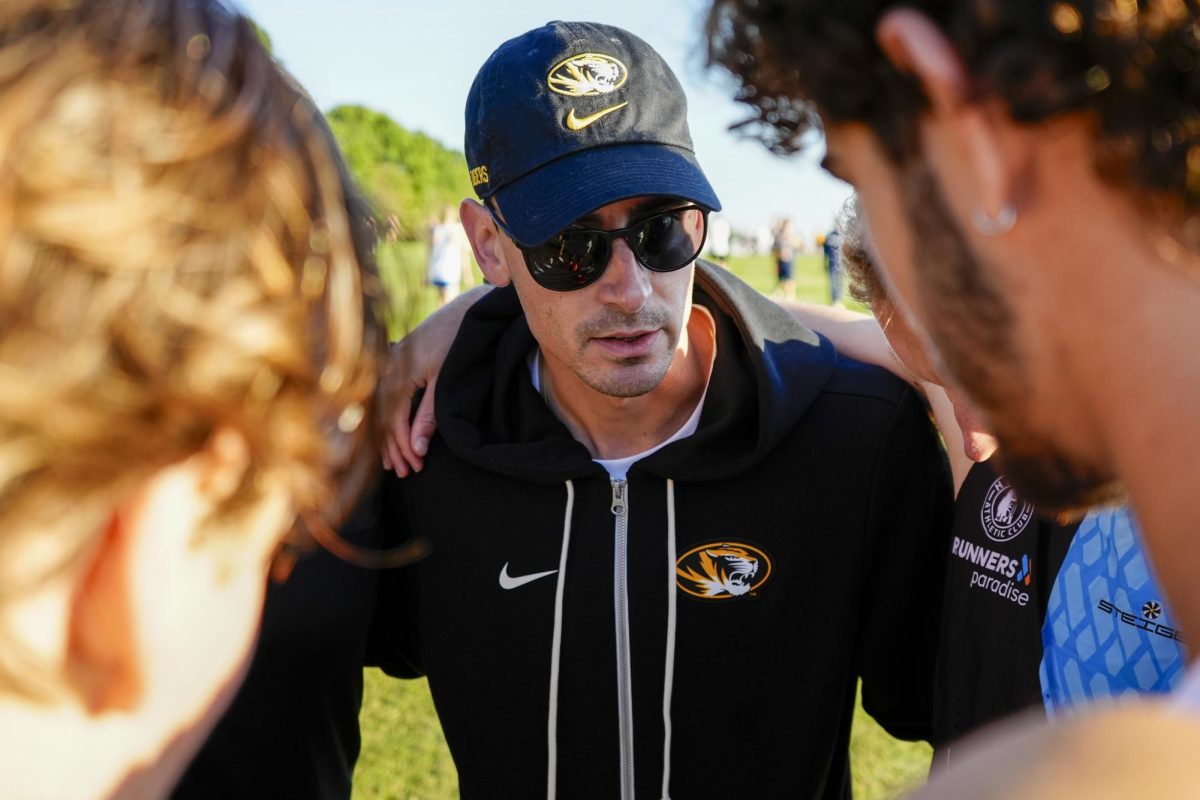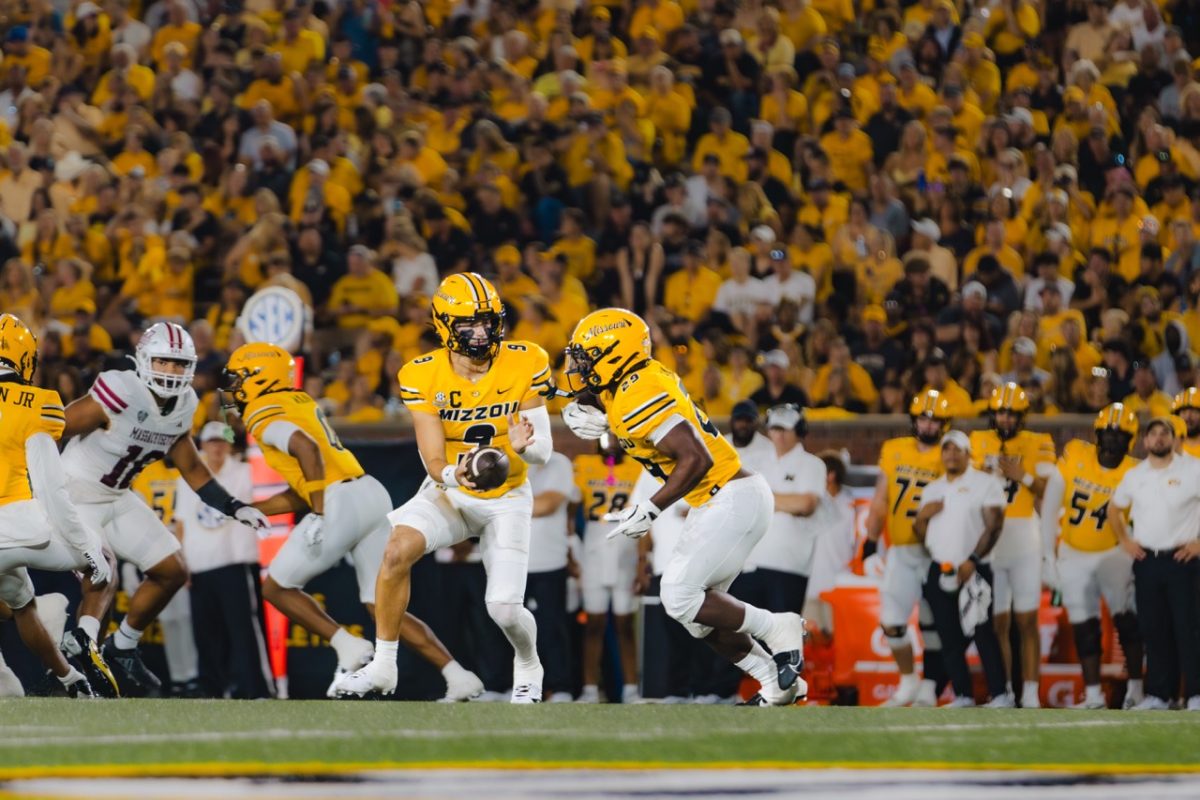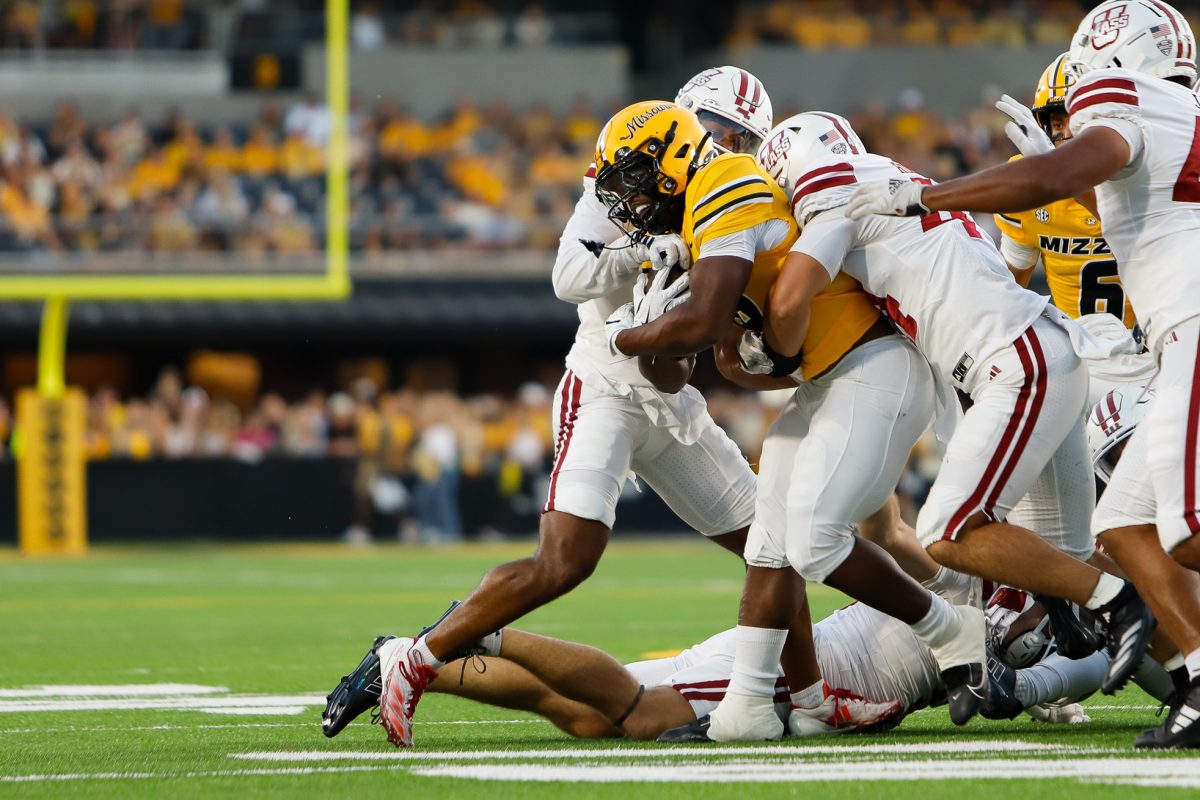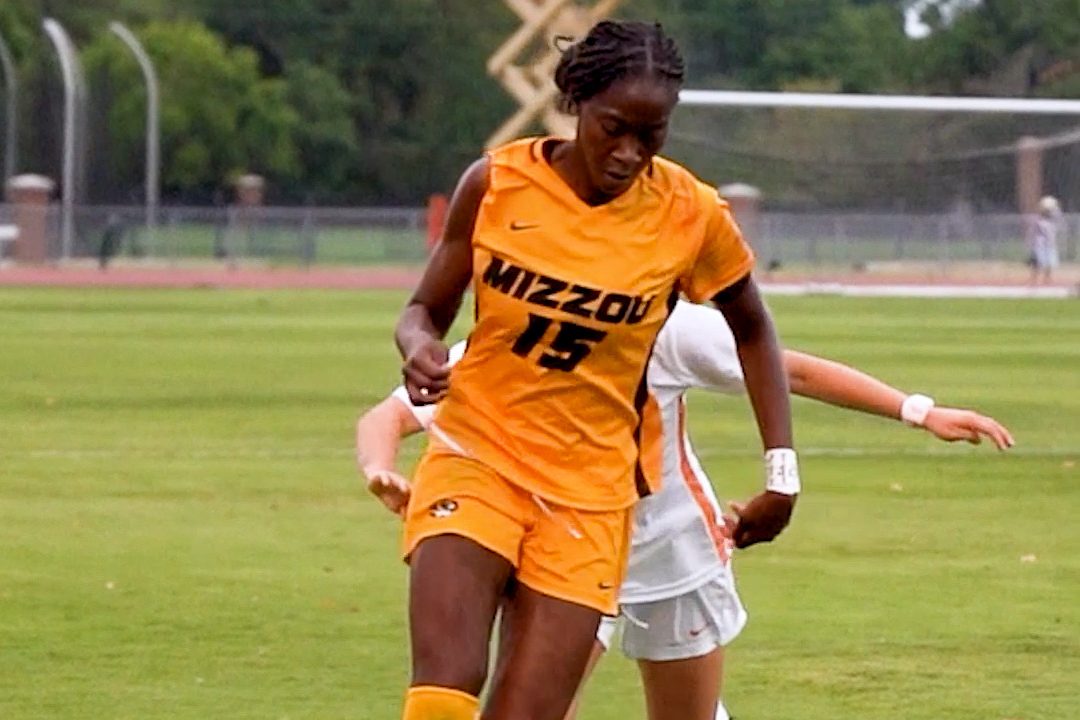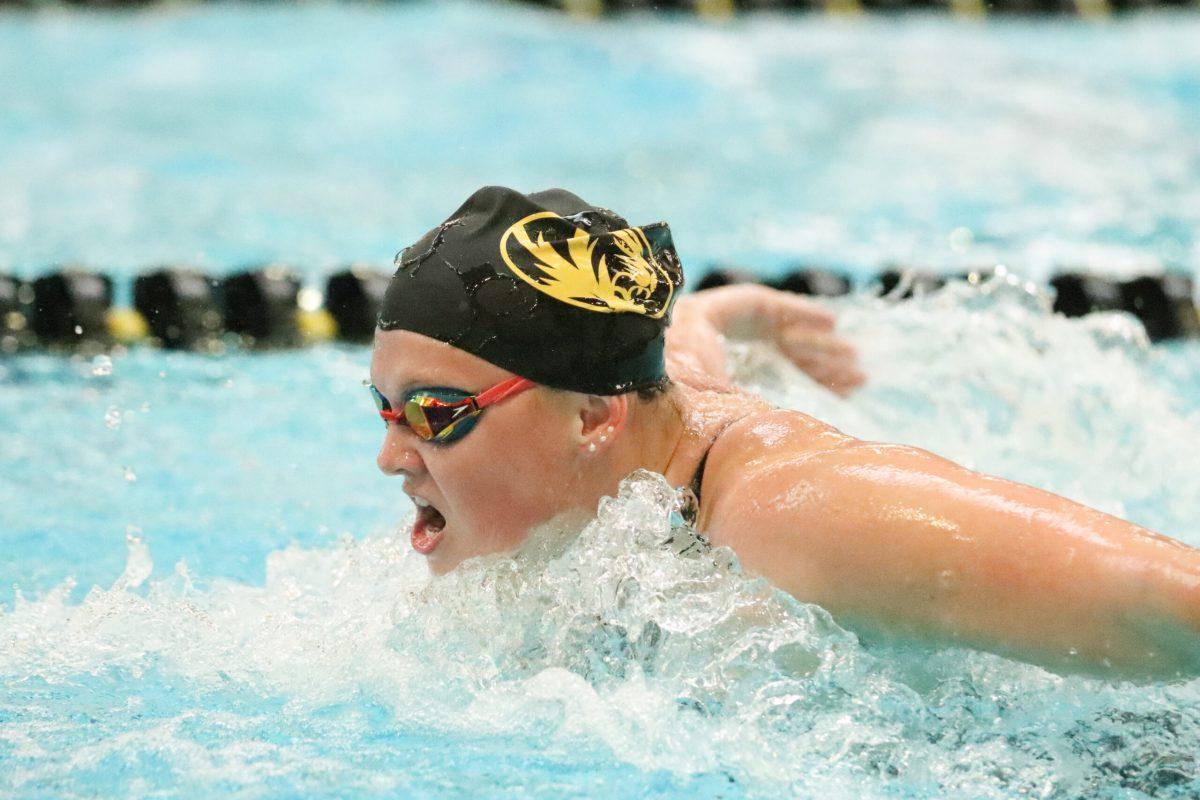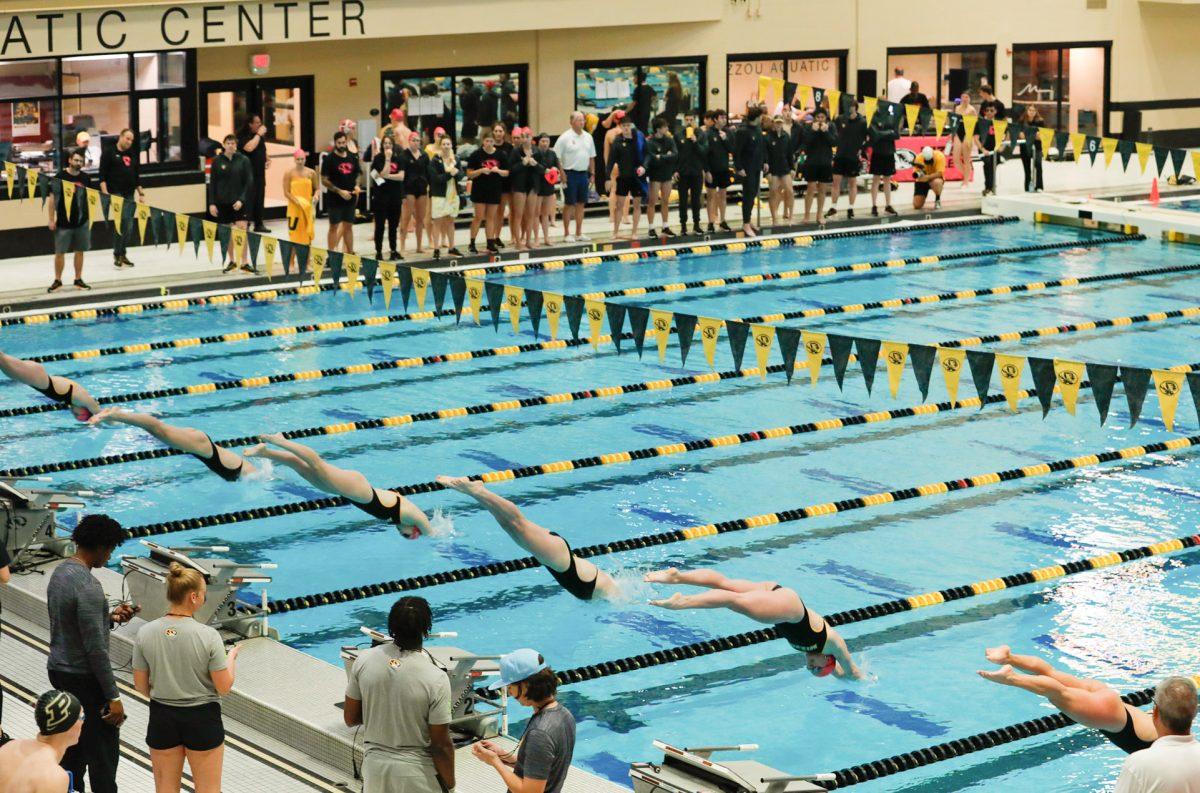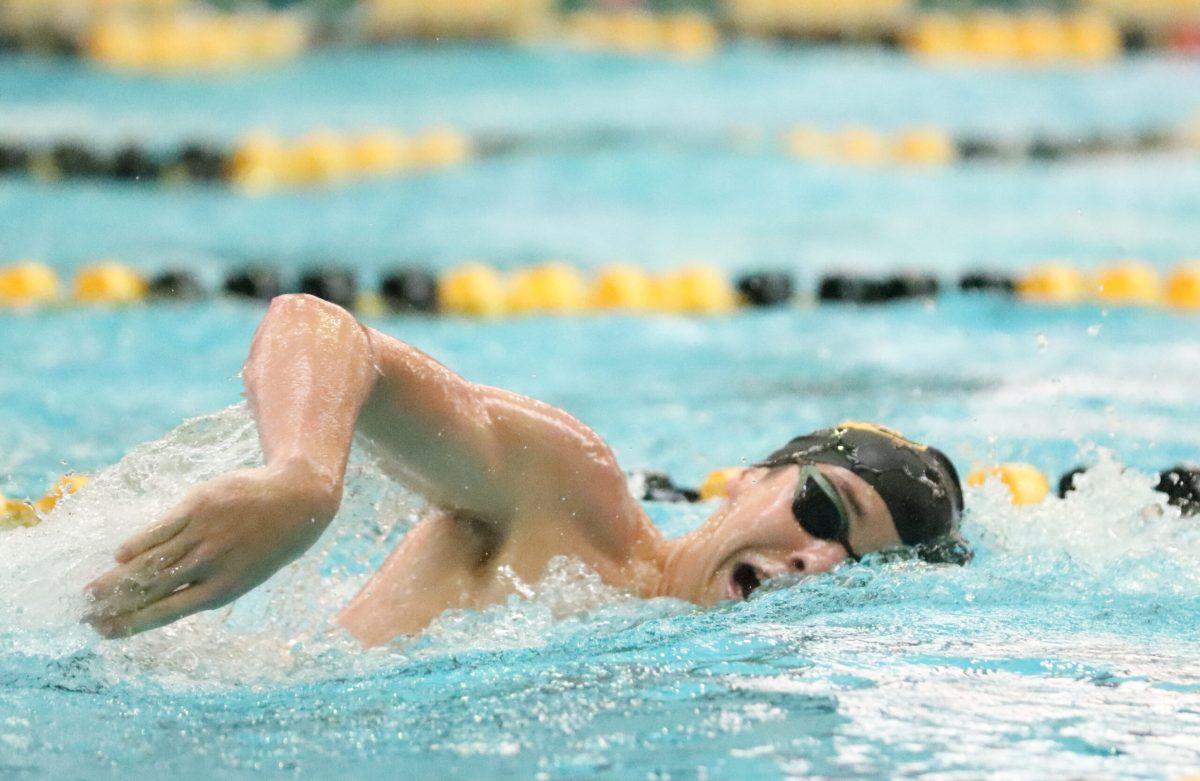For Missouri graduate Dominique Bouchard, missing the 2012 Canadian Olympic Team was painful. Bouchard finished fourth in both the 100-meter and 200-meter backstroke, just two spots and less than a second shy of making the team in both events.
After barely missing the Olympic Team, returning to the sport took a little longer than usual for Bouchard.
“I was so disappointed,” she said. “I took more time off than I normally do, kind of got back into it myself and figured out a four-year plan and we’re sticking to it and it’s going well.”
Bouchard has used the heartbreak of missing the Olympic Team as a motivating force. Three years after the last Canadian Olympic Trials, she has transformed herself into one of the top backstrokers in the world.
Even though she graduated in 2013, she can still train with the Mizzou Tigers, along with other post-graduate swimmers.
To train as a post-graduate in coach Greg Rhodenbaugh’s program, a swimmer must have a good reason. For most post-graduate swimmers, the dream of making an Olympic or National team keeps them in the sport. This is the case for Bouchard, who hopes to make Canada’s 2016 Olympic Team.
“You’ve got to know you’ve got a shot and then you’ve got to be willing to chase it,” Rhodenbaugh said.
Bouchard is one of four post-graduate swimmers currently training with Mizzou. She is joined by Sam Tierney, Mack Darragh and Dani Barbiea, all of whom graduated in 2015. The four swimmers all earned NCAA All-American honors during their careers with Mizzou and hold individual event records.
Darragh is also Canadian and has a chance to make their Olympic Team in 2016. In 2015, he posted the third fastest time by a Canadian in the 200-meter butterfly. Bouchard said that they are “trying to get two Mizzou kids on the Canadian (Olympic) Team.”
Tierney and Barbiea will both compete at the U.S. Olympic Trials this coming summer. Both hope to either make the Olympic Team, which takes the top two swimmers in almost every event, or the National Team, which takes the top six.
“We’ve developed some people into some of the best swimmers in the world,” Rhodenbaugh said. “That’s the reason to swim post-graduately.”
Tierney specializes in breaststroke and was arguably Mizzou’s best swimmer last season. In 2015, he posted the 10th fastest time by an American swimmer in the 200-meter breaststroke.
What has kept Tierney in the sport is that he does not feel like he is done getting better.
“I’ve seen improvement year after year,” he said. “And so if I haven’t really hit my peak, there’s no point in stopping yet.”
Tierney is taking this year to focus almost entirely on swimming. He does tutor for the Intercollegiate Athletics Department, but he is not working full-time or taking classes. Bouchard, on the other hand, is working on her master’s degree in health administration.
Since the post-graduate swimmers have exhausted their four years of NCAA eligibility, they are not able to compete in college meets for the Tigers. However, they will swim in a few professional meets during the season.
Mizzou was not the only place Bouchard could swim as a post-graduate. A year ago, she was given the chance to swim at the High Performance Center in Toronto. However, she decided to stay with the Mizzou team.
“I had made a life here,” Bouchard said. “I had all my friends here, my boyfriend’s just in Kansas City, so it’s definitely something that I didn’t want to drastically change two years out from the Olympics.”
Bouchard joined Mizzou’s swim team in 2009. Now, six years later, she finds herself close to the end of her career with the team.
“Almost for sure I can say that this is my last year swimming at Mizzou, so I’m making the best of it,” she said.
Tierney is not sure about his future in the sport after Olympic Trials. He plans to evaluate where he is with swimming every year.
“I’m taking it year by year,” he said. “I could see myself being done, but if you make a National Team and you can get funded, that’d be great. I’d love to see if I can swim another year, but I’m just going to see year by year.”
With the growing strength of Mizzou’s program, Rhodenbaugh has had non-Mizzou post-graduate swimmers ask to swim with the Tigers. At this point, though, Rhodenbaugh only wants to train swimmers with connections to the Mizzou program.
Rhodenbaugh said what makes the post-graduate swimmers special is their ability to see that they still have room to grow.
“The goals are always to get them to the maximum place that they can be, and we’re on that road,” Rhodenbaugh said. “I don’t think any of them have reached their ultimate potential yet. They’re certainly getting closer every meet, everyday. There’s still more in the tank for all of them and they see that.”


